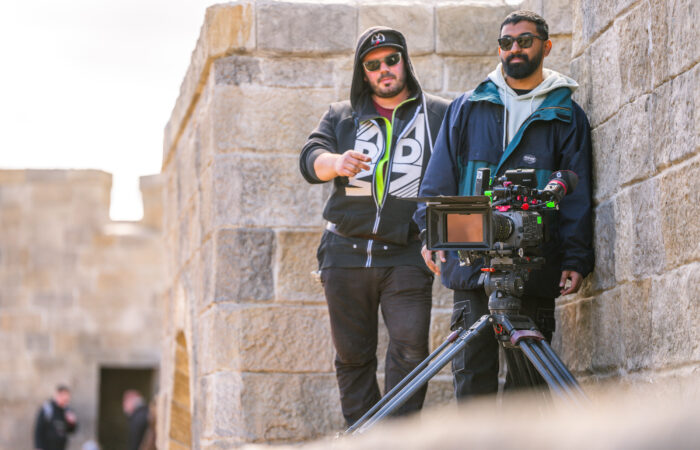In our long-term programs (5-month and longer), you can choose Cinematography as your specialisation and define your role within the filmmaking process. As a cinematography student, you will attend mandatory classes tailored to camera work and visual storytelling, along with practical shooting days where you step into the role of Director of Photography. This structure allows you to build strong general filmmaking skills while gaining deep expertise in cinematography.
In semester and long-term programs, you will shoot at least one film each term as a cinematographer, while also contributing to your classmates’ projects. In short-term courses (1–3 months), you study general filmmaking, but in the final group project you can take the role of cinematographer—earning your first official film credit.
You’ll explore both the creative and technical sides of camera work, lighting and collaboration. You’ll gain hands-on experience through practical workshops and shooting on sets.
Cinematic composition & framing
Lighting design (indoor & outdoor)
Camera operation (manual, professional rigs)
Collaborating in real productions
Visual storytelling principles

About
Practical hours
Final film Role
Next Step
Teaching Hours
Workshops
Colaborative Shoots
Final Film
Next Step
Teaching hours
Workshops
Collaborative Shoots
Final Films
80+ hours dedicated to your own films
Semester 1: 1–5 min short film (on-camera role)
Semester 2: 3–10 min short film (on-camera role)
Next Step
Teaching Hours
Workshops
Collaborative Shoots
Final Film
80+ hours focused on producing a festival-ready short film
7–15 min short film (on-camera role)
Next Step
Teaching Hours
Workshops
Collaborative Shoots
Final Films
240+ hours dedicated to personal film work
Year 1: 2 short films (1–5 min & 3–10 min)
Year 2: 7–15 min final film with festival ambitions
Next Step


Before the program begins, there are a few essentials to get ready. This section outlines what you’ll need to bring, what is provided by the school, and what to expect in terms of equipment and basic costs.
Error: Contact form not found.
Click one of our contacts below to chat on WhatsApp